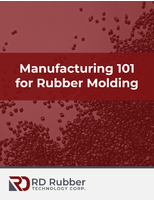Polyscope Polymers Expands Scope of XIRAN® SMA as Additive for Amorphous Thermoplastics
Share:
SMA Additive Increases Value of ABS, PMMA by Boosting Thermal Performance, Paintability, & Compatibility in Multi-Material Systems
GELEEN, THE NETHERLANDS and DETROIT - Styrene maleic anhydride (SMA) compounds have long been used as molding resins in the automotive, packaging, and building & construction industries, and maleic anhydride itself is a well-known coupling agent between glass or natural fibers and resin matrices. However, a lesser known but growing use for neat (unreinforced, non-impact modified) SMA grades is as an additive/compatibilizer in amorphous thermoplastics and copolymers to improve thermal performance, surface polarity, and miscibility with other resins in blends and alloys. XIRAN® SMA additives can boost performance and value of recycled or virgin resins such as acrylonitrile butadiene styrene (ABS), and polymethyl methacrylate (PMMA), and extending thermal stability, improving the processing window, and making parts molded from these resins easier to bond, paint, print on, or plate at a modest cost vs. other additives and proprietary polymermodification techniques for these same resin families.
Leading the charge in expanding the use of SMA as a performance enhancer for thermoplastics is Polyscope Polymers BV, headquartered at Geleen, the Netherlands and with sales and marketing offices in -metropolitan Detroit and Shanghai, China. Sold under the tradename XIRAN®, the company currently has industry's broadest offering of SMA resin additives and molding compounds in terms of both range of molecular weights and percent maleic anhydride - two variables that can be manipulated to change final molded-part properties. SMA has unique functional properties due to the combination of polar maleic anhydride (which also contributes stiffness, thermal stability, and chemical reactivity) and non-polar styrene (which also provides processing ease). Manipulation of the ratio of styrene to maleic anhydride allows polarity to be adjusted. This block copolymer is miscible in a wide range of plastics, which enables it to be used as a compatibilizer in multi-polymer systems.
Thanks to XIRAN SMA's high glass-transition temperature (Tg) range of 145-175oC/293-347oF , it is a very cost-effective way to boost thermal performance in PMMA and ABS resins. Properties like heat-deflection temperature (HDT), continuous-use temperature (CUT), Vicat softening, and heat aging can all be improved. Incidentally, the base resin's processing window also is broadened, and its dimensional stability and ability to hold tight tolerances after molding are increased coincident with improvements in its thermal performance.
Depending on the starting ABS copolymer and the grade of XIRAN SMA used, generally for every 1% of SMA added to the compound, the thermal performance of the base resin is shifted upward by 0.3 to 0.7oC (0.5 to 1.2°F). Or, said another way, for every 1oC increase in thermal performance desired in the base compound, between 1.5 and 3.3% SMA should be added to the compound (0.9 to 1.9% to increase 1oF). This means that compounders and recyclers can take lower value, standard- or scrap-grade ABS and transform it into value-added high-heat ABS using SMA resin, which is less costly and far more accessible than competitive heat-boosting technologies like N-phenyl maleimide (NPI) and alpha-methyl styrene acrylonitrile (AMSAN). SMA additives allow customizable improvements in the thermal performance of ABS, with Vicat B ranges of 85-120oC/185-248oF or higher typically seen.
Since SMA is fully miscible in PMMA and is also clear, it offers the ability to improve acrylic's thermal performance as well as resistance to stress cracking and exposure to chemicals like detergents - all while maintaining its water-clear transparency and optical properties, with minimal impact on the refractive index of molded acrylic parts. These are attractive features for PMMA used in a variety of industries. Depending on the grade of acrylic XIRAN SMA used, generally for every 1% of SMA added to the compound, the thermal performance of the base resin is shifted upward by 0.4 to 0.6oC (0.8 to 1.0°F). Or, said another way, for every 1oC increase in thermal performance desired in the base compound, between 1.8 and 2.3% SMA should be added to the compound (1.0 to 1.3% to increase 1oF).
XIRAN SMA Additives to Modify Surface Polarity/Reactivity
Another useful property that can be improved in ABS and PMMA resins through the addition of SMA additive is a change in the base resin's polarity. By increasing polarity or surface reactivity/adhesion, molded parts are easier to paint, plate, print on, or bond with adhesives, skins, foams, and other decorative or functional treatments. In fact, use of SMA additive can often allow processers to skip the primer step in painting operations, saving both time and cost to produce finished parts. This feature is especially attractive to processors supplying parts for painted, metalized, in-mold decorated, or slush-molded automotive-interior applications, or for other industries with similar needs for high aesthetic and greater thermal performance on parts requiring secondary-finishing operations.
XIRAN SMA Additives as Compatibilizers
Yet another area of functional improvement in PMMA and ABS base resins when SMA additives are used is compatibilization with various reinforcements and other polymers in multi-material systems. The broad miscibility and adjustable polarity of SMA helps reduce phase separation and improves bonding between the base resin and glass or natural fibers, rubber particles, thermoplastic polyurethanes (TPUs), thermoplastic elastomers (TPEs) and vulcanizates (TPVs) like styreneethylene/ butylene-styrene (SEBS), and polymers that normally are immiscible with PMMA and ABS, such as nylon (polyamide (PA)).
Compounding /Molding with XIRAN SMA Additive
Several different grades of SMA additive are commercially available in the XIRAN product line to provide broad flexibility in adjusting base resin properties for ABS and PMMA. Grades are available for either injection molding or extrusion and are offered granulate form. A liquid form factor is also available for fiber-coating treatments. These can be let down at the rate a processor requires to achieve specific molded-part properties. Typical letdown percentages range from 20-40 wt-% SMA, with a maximum of 60% used depending on the application requirements.
Compounding can be done on most conventional equipment with good temperature control. The best mixing will be achieved with a twin-screw extruder (TSE), although a single-screw extruder (SSE) may also be used where lower percentages of SMA are being compounded into the base resin. For typical extrusion-compounding conditions, feed-zone temperature should be around 120oC/248oF and the die should be around 220oC/428oF, with an optimum melt temperature between 240- 260oC/464-500oF. Other additives (e.g. release agents, antistatic agents, fillers and reinforcements, UV stabilizers, pigments, etc.) may either be dry-blended at the start or introduced via side or top feeders during compounding. Ironically, SMA also is a very-effective purging compound due to its inherent polarity, so compounding or molding with it helps ensure clean equipment. (In Japan, SMA is used as the preferred purging compound rather than polyethylene (PE) as is more common in Europe and North America.)
Typical automotive applications where SMA additives are used to enhance the properties of PMMA or ABS resins include instrument-panel (IP) carriers, air ducts, and high-precision parts such as speaker frames, sunroof structures, door-panel inners, interior-trim panels, louvers, and parts for lighting systems. Common non-automotive uses for SMA additives in ABS or PMMA resins include food packaging, chrome-plated sanitary parts, and components for building & construction, electrical and electronics, appliances/white goods, and lighting applications.
"SMA is such a versatile and cost-effective polymer modifier," said Patrick Muezers, managing director, Polyscope Polymers, "that we see its use as an additive in acrylics and ABS as well as other thermoplastic systems increasing as customers learn of the many benefits it brings. It's exciting to see a low-value product like scrap ABS be converted into a high-value product like high-heat ABS simply by using SMA to improve thermal performance. Be assured that Polyscope Polymers is working to expand both our capacity and product offerings to meet our customers' current and future needs for SMA additives."
About Polyscope Polymers
Polyscope Polymers BV is a Dutch producer of styrene maleic anhydride copolymers and maleic anhydride monomers, with headquarters and production facilities at Geleen, The Netherlands and sales and marketing offices in metropolitan Detroit and Shanghai, China . The company was founded in 2006 by a group of international private investors and plastics-industry leaders, and backed by Limburg Development and Investment Company LIOF and Limburg Ventures. The group purchased a production plant from DSM at Geleen, where that company produced SMA as a heat-stabilizer and compatibilizer for its ABS resin. When DSM divested its styrenic product line, Polyscope acquired the plant. The facility has a comprehensive, high-tech design focused on safety and reliability and is ideal for producing a complete range of chemical intermediates, polymers, and compounds - with molecular weights ranging from 10,000 to 180,000 g/mol and with maleic anhydride content between 22% and 42% - which are used in a wide variety of markets. Subsequent renovation of the site has led to even higher purity products and positioned the company to better document process and machinery to conform to international quality standards. The facility has recently been valued at 41.2 million/$58.1 million USD.
The company's strategic focus is two-pronged. It produces a range of SMA copolymers that are compounded for use as moldable engineering thermoplastics widely used in the automotive industry as well as optical and food packaging and handling, and film-forming applications. The company also produces chemical intermediates such as maleic anhydride monomers and SMA additives commonly used as stabilizers and performance-enhancing additives for styrenic and olefinic plastics, and sizing chemistry for glass, paper, and natural fibers. Maleic anhydride chemistry is also used to improve coatings and dispersions, and for compatibilization in paper, ink pigmentation, leather treatment, and other industries. The company's application-development teams work closely with customers worldwide to understand the functional requirements of the end product to determine the best material to meet application needs. The team brings "fresh thinking" to materials selection using the unique characteristics of SMA products.
As amorphous thermoplastics with high glass-transition temperatures (Tg), SMA copolymers provide excellent mechanical and thermal performance (heat-deflection temperature (HDT) ratings of 120-150oC/248-302oF). They also are characterized by excellent heat-aging performance, low moisture absorption, very-low shrinkage for precision molding, excellent repeatability and reproducibility, low coefficient-of-linear-thermal expansion (CLTE) to reduce thermal mismatches in multi-material systems, excellent long-term dimensional stability over a broad temperature range, ease of vibration welding, and good noise/vibration/harshness (NVH). Since they are polar resins, they offer very good adhesion to glass reinforcements and excellent adhesion to a variety of paints, foams, and adhesives without need for pre-treatments. The high thermal stability of SMA resins means molders have a wider processing window to work with and the materials maintain high property retention after melt reprocessing or recycling.
For more information about the company, see www.polyscope.eu , or eMail: info@polyscope.eu , or call: +31.46.47.63989, or write: Polyscope Polymers B.V., Chemelot Gate 7, Koolwaterstofstraat 1, NL-6161 RA Geleen.
XIRAN® is a trademark of Polyscope Polymers BV. All other trademarks are the property of their respective owners.
Media Contacts:
Patrick Muezers (pmuezers@polyscope.eu) Marcia Kurcz (mkurcz@polyscope.eu)
Managing Director North American Sales & Marketing
Polyscope Polymers BV Polyscope Polymers North America
Ph: +31.46.47.63.989 Ph: 1.248.684.6204 or Cell: 1.248.520.2670




